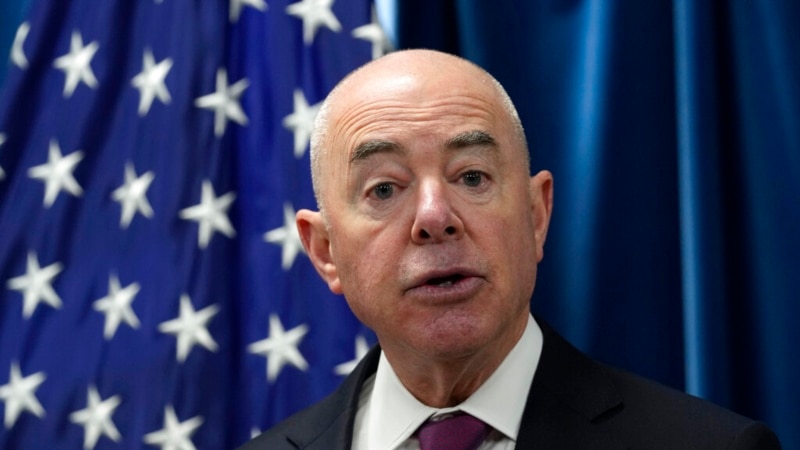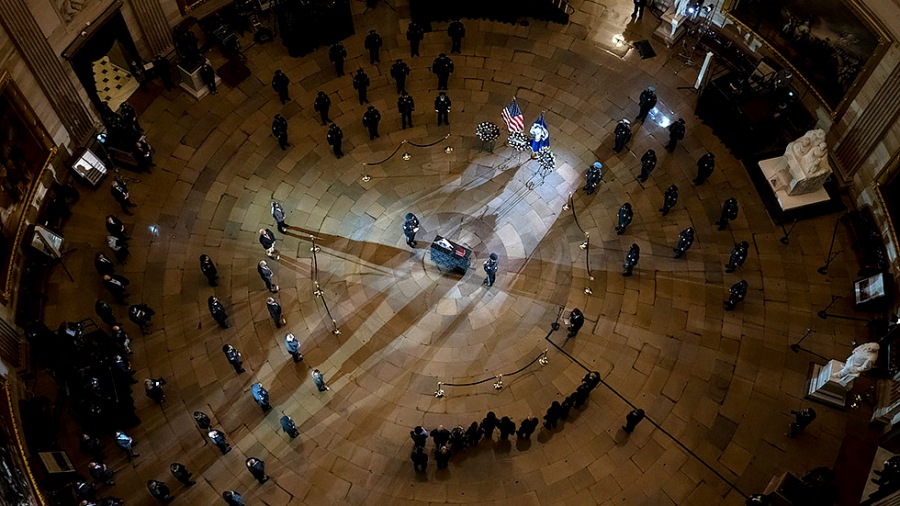Just In | The Hill
Rep. Kevin McCarthy and some of his GOP detractors appeared Thursday to be nearing a deal that would bring him closer to the Speakership, even as his most vocal critics vowed that it wouldn’t be enough to grant him the gavel.
The two sides were working furiously behind closed doors to carve out an agreement even as McCarthy lost five more floor votes for the Speakership, with the same band of opponents voting against him. It made 11 straight ballot losses for McCarthy.
“It’s changes that we wanted,” said Rep. Ralph Norman (R-S.C.), one of the 20 Republicans consistently voting against McCarthy, said of the offers coming from the McCarthy camp.
“Now, we got a lot more we got to get to,” he cautioned. “But this round one, it’s on paper, which is a good thing.”
McCarthy allies also voiced optimism, saying they felt progress was being made.
But they hadn’t been able to show progress on the floor despite the growing number of concessions. And it was unclear a deal would get McCarthy over the hump.
When asked Wednesday evening if there is anything that McCarthy can do to win her support, Rep. Lauren Boebert (R-Colo.) said: “No.”
Asked the same question on Thursday, Rep.-elect Eli Crane (R-Ariz.) said, “I don’t think so.” Rep.-elect Andy Ogles (R-Tenn.) said, “Well see.”
Reps. Matt Gaetz (R-Fla.), Andy Biggs (R-Ariz.) and Bob Good (R-Va.) appear similarly entrenched in their opposition.
“You don’t ever have to ask me again if I’m a no,” Good told reporters on Thursday. “I will never vote for Kevin McCarthy.”
The House voted just after 8 p.m. to adjourn until noon Friday — which did represent some progress for McCarthy. He’d been pushing for an adjournment and it was backed by the Republicans supporting and opposing him.
Many of McCarthy’s most intransigent GOP critics didn’t even appear to be involved in Thursday’s negotiations, and it was far from clear he’d win 16 Republicans.
Four of McCarthy’s most intransigent GOP critics didn’t even appear to be involved in Thursday’s negotiations. But it was far from clear he’d win over the other 16 Republicans who were talking.
Thursday’s spectacle marked an ignominious milestone: The 10th speaker ballot surpassed the nine ballots required to seat a House leader in 1923, making this year’s process the most protracted since the Civil War. And there’s no clear end in sight.
Thursday’s marathon talks took place in the Capitol office of incoming House Majority Whip Tom Emmer (R-Minn.).
The negotiators included Reps. Patrick McHenry (R-N.C.), Brian Fitzpatrick (R-Pa.) and Emmer, all key defenders of McCarthy, with Reps. Chip Roy (R-Texas), Scott Perry (R-Pa.), Dan Bishop (R-N.C.) and Byron Donalds (R-Fla.).
McHenry was one of those signaling optimism.
“We have the right contours than enable us to get Kevin McCarthy having the majority of the vote, and that’s assurances on the structure of how we’re going to deal with each other, how we’re going to enable sound public policy, and the type of public policy that will be front and center for this Congress,” he said.
“It’s the type of assurances that all majorities need to make at some period of time. I wish we’d have made them before, but we’re making them now,” McHenry said. “We’ve had members that have held out in the hopes of getting more conservative policy to the floor, and I think we can get there. This is the most hopeful set of conversations we’ve had in weeks.”
Among the concessions being offered were lowering the threshold for a motion to oust the House Speaker to just one member and increasing the number of hard-line conservatives on key committees.
Norman said the concessions offered by McCarthy include a guaranteed floor vote to establish term limits for all House lawmakers; an open amendment process, providing rank-and-file lawmakers with more power to alter legislation; adoption of the so-called Holman rule, which grants Congress new powers over federal agencies; and a 72-hour rule — requiring three full days for lawmakers to read bills before they hit the floor.
Yet even as those talks took place, some of McCarthy’s detractors appeared to be moving farther from him.
Gaetz on Wednesday excoriated McCarthy for allegedly soliciting a list of desired committee assignments from the group of detractors and then using it around to portray them as negotiating personal favors.
Perhaps no one in McCarthy’s camp thinks Gaetz is a gettable vote. All the same, it was notable that he, Boebert, Biggs, and Good, were not present during much of the extensive talks in Emmer’s office on Thursday. Their absence seemed to allow negotiators more space to cut a deal.
“We have the right people in the room talking, and that is a very healthy ingredient,” McHenry said.
The concessions themselves are a risk for McCarthy, though most Republicans supporting him appear ready to swallow those changes for the sake of ending the speaker stalemate.
Rep. Mike Rogers (R-Ala.), the incoming chair of the House Armed Services Committee, blasted the proposal to offer committee seats for Speaker votes.
“That is insane that they presented that, that they wanted to get committee assignments and committee chairmanships without going through the steering committee, as if Kevin McCarthy or any Speaker magically gets to tell members,” he said. “‘Oh, by the way, I’m giving your seat to somebody else who was an aggravation to the conference.’ It just shows how insane they are.”
Rep. Don Bacon (R-Neb.) and other members have previously signaled that they would not accept lowering the threshold for the motion to vacate the chair, but appear poised to relent if it secures the Speakership for McCarthy.
“I do object to the vacate rules, but would I vote no on the Speakership because of that? I would say no, I would prefer not to do that,” Bacon said on Thursday.
Some McCarthy’s supporters were so optimistic about his chances.
“I think the number that will never vote for Kevin McCarthy is more than four,” Rep. Warren Davidson (R-Ohio) said on CNN Thursday morning. That would block McCarthy from the gavel.
Rep. Ken Buck (R-Colo.), who previously said that McCarthy should step back and make way for House Majority Leader Steve Scalise (R-La.) if he can’t make a deal, also expressed doubt about McCarthy moving enough members to win.
“There are still some holdouts and I think the 20, sort of have a blood oath that they will – all move together or none of them will move,” Buck said on CNN.
He later said that members, including himself, would start looking for another candidate if McCarthy can’t make a deal, and that he will “lose credibility” if a deal does not come to fruition.
The detractors threw a new name into the Speaker mix with votes on nominations on Thursday: Rep. Kevin Hern (R-Olka.), the incoming chair of the conservative Republican Study Committee, the largest conservative caucus in the House.
And while Hern has supported McCarthy on all ballots, he did not dismiss the idea of being a compromise Speaker candidate.
“I’m happy as RSC chair and there’s a lot we are already doing there,” Hern told local Oklahoma outlet The Frontier earlier on Thursday. “If I hear my name, it’s something I’ll have to think and pray about before deciding if it’s a job I’ll run for.”
Al Weaver, Mychael Schell, Aris Folley and Rebecca Beitsch contributed.
House, News, Chip Roy, House Speakership vote, Kevin McCarthy, Matt Gaetz











